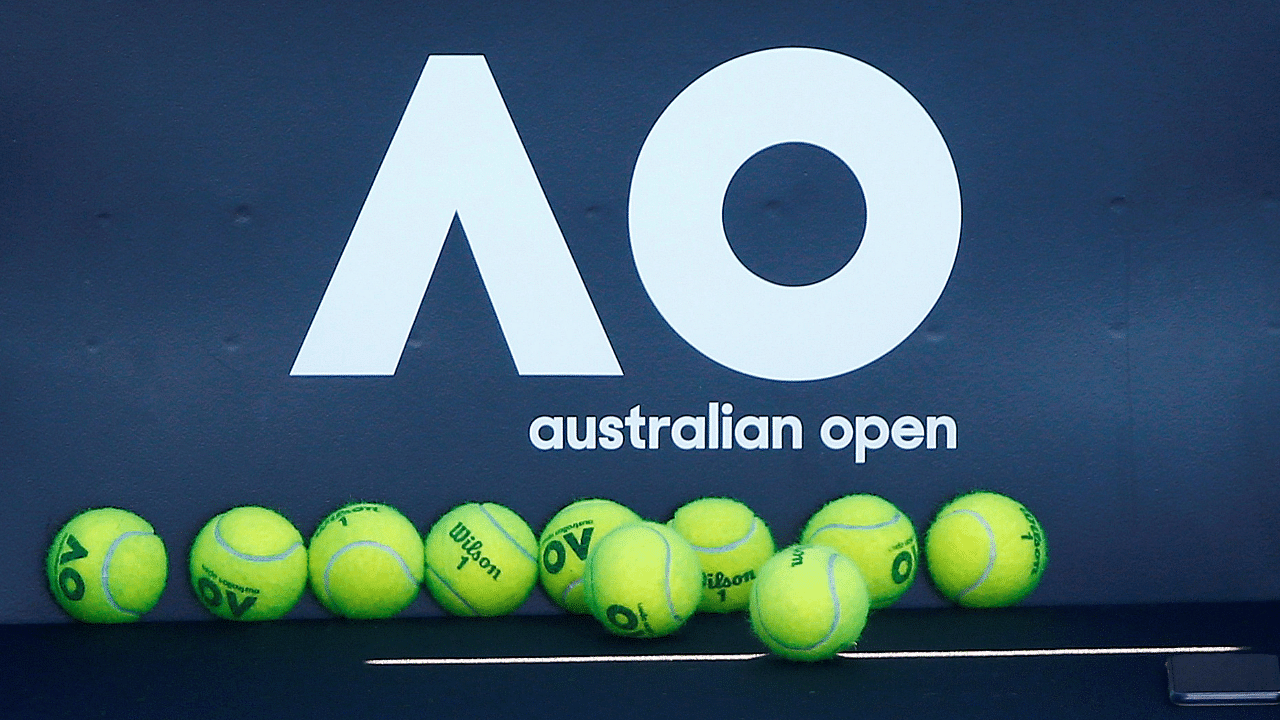
Tennis' top stars face the threat of sanctions if they breach stringent Covid-19 protocols when they arrive this week for an Australian Open deemed by its top boss as needing a "small miracle" to go off without a hitch.
The calendar's first Grand Slam normally starts in the third week of January but planning for this year's tournament has been a logistical nightmare for beleaguered organisers.
Tennis Australia initially wanted players arriving in Melbourne by mid-December.
But restrictions on international arrivals to the state of Victoria pushed back the tournament start date to February 8, with a series of WTA and ATP events being played at Melbourne the week before to ensure players are up to speed.
Melbourne was the epicentre of Australia's largest second wave outbreak of coronavirus, which prompted strict lockdown measures for four months.
This grim backdrop fuelled tense negotiations between government officials, organisers and players to iron out an agreeable health security protocol for the Australian Open.
The sticking point had been over allowing players to practise during the compulsory 14-day quarantine period but eventually authorities gave the green light and granted daily five-hour blocks for training and treatment.
Players, however, face stricter measures compared to last year's US and French Opens held in cities stricken by the virus and will be required to spend 19 hours daily during quarantine confined to their hotel rooms.
Defending Australian Open champion Sofia Kenin admitted it was "not the most ideal situation". "It is what it is. The rules are quite harsh, but it's for everyone," she said.
There is also the threat of sanctions, including hefty fines, spending additional time in quarantine or deportation, if the rules are broken.
Ukrainian world number five Elina Svitolina hired a mental coach in an effort to cope with the stress and uncertainty.
"I think during the difficult time right now, mentally it's very important to stay strong, to stay fresh," she said.
Six-time Australian Open champion Roger Federer's decision to withdraw -- breaking his record streak of 21 straight singles appearances in Melbourne -- affects the pulling power of the tournament, which was left reeling after suggestions he skipped because of the quarantine rules.
The 39-year-old had two rounds of knee surgery last year and has not played since his semi-final defeat to Novak Djokovic at the Australian Open 12 months ago.
"The problem is that Mirka (Federer's wife) and their children couldn't leave the room," Tennis Australia's head of player liaisons Andre Sa told Brazilian media.
"They would have to stay 14 days in the room. The exception is only for players."
Just days ahead of players arriving organisers were forced into a scramble to find more accommodation after a luxury Melbourne hotel due to host them pulled out.
In a late twist, it was revealed Saturday that a contingent of up to 50 -- including top stars Novak Djokovic, Rafael Nadal, Serena Williams and Naomi Osaka -- would quarantine instead in Adelaide with an exhibition tournament held there prior to the Australian Open.
It led to world number 72 Jeremy Chardy accusing organisers of preferential treatment.
Australian Open chief Craig Tiley admitted there would be "some benefits" for players amid the smaller cohort in Adelaide but said "the conditions of training will be the same".
Tiley said the toll on organisers had been immense with a 1,270-strong contingent on 80 charter flights, bankrolled by Tennis Australia, journeying to Melbourne and Adelaide this week.
"It's just crazy, we've never seen anything like it," he told the Tennis Channel.
"Logistically, to pull something like this off will be a small miracle but we are giving it a good go."
Even though Melbourne recently experienced a small new outbreak of the virus, Tiley expected crowd capacity at the Grand Slam to be around 50-75 percent, exceeding the biggest audience for a tennis tournament since the pandemic started.
"We are doing the best we can to deliver an Australian Open to as close as it was in 2020," he said. "Hopefully there will be normalcy to it."